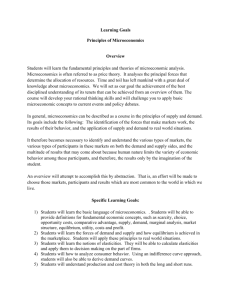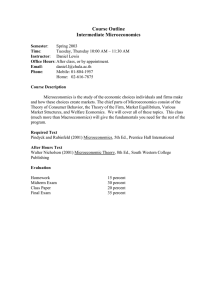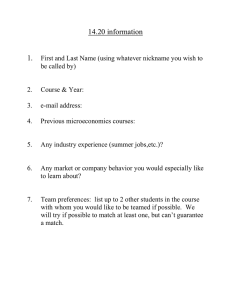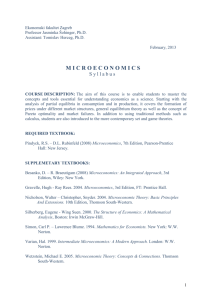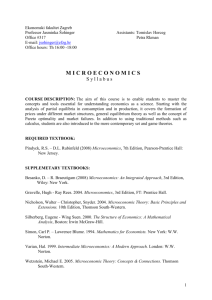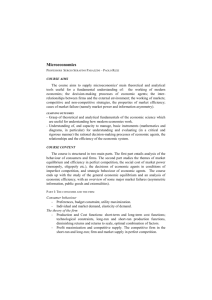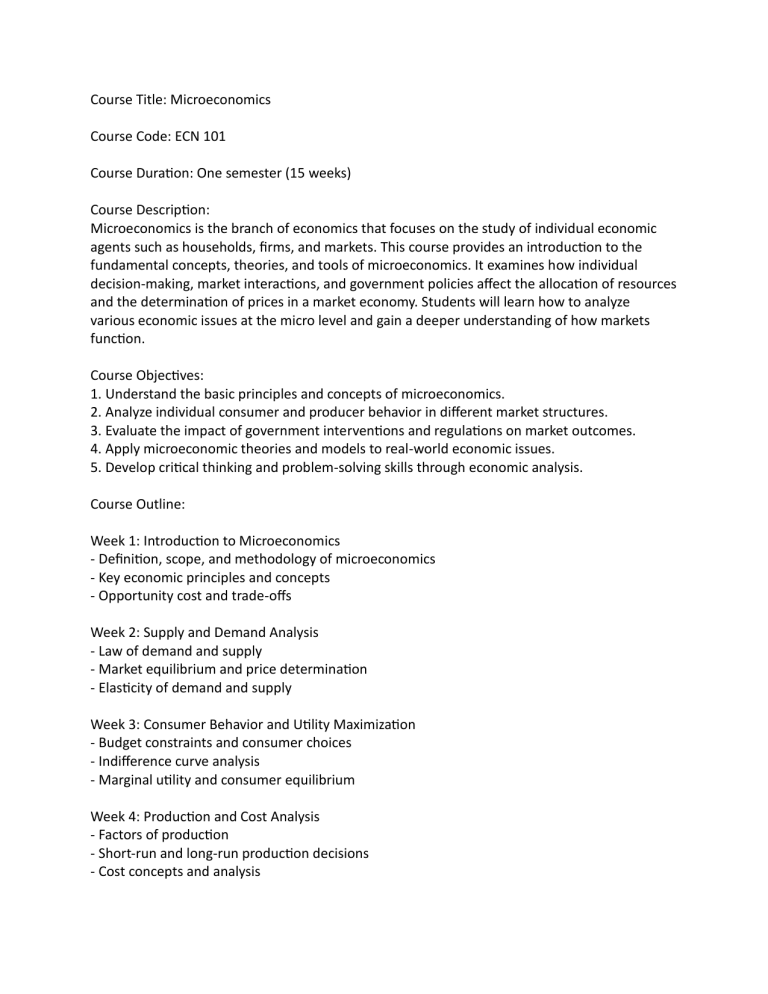
Course Title: Microeconomics Course Code: ECN 101 Course Duration: One semester (15 weeks) Course Description: Microeconomics is the branch of economics that focuses on the study of individual economic agents such as households, firms, and markets. This course provides an introduction to the fundamental concepts, theories, and tools of microeconomics. It examines how individual decision-making, market interactions, and government policies affect the allocation of resources and the determination of prices in a market economy. Students will learn how to analyze various economic issues at the micro level and gain a deeper understanding of how markets function. Course Objectives: 1. Understand the basic principles and concepts of microeconomics. 2. Analyze individual consumer and producer behavior in different market structures. 3. Evaluate the impact of government interventions and regulations on market outcomes. 4. Apply microeconomic theories and models to real-world economic issues. 5. Develop critical thinking and problem-solving skills through economic analysis. Course Outline: Week 1: Introduction to Microeconomics - Definition, scope, and methodology of microeconomics - Key economic principles and concepts - Opportunity cost and trade-offs Week 2: Supply and Demand Analysis - Law of demand and supply - Market equilibrium and price determination - Elasticity of demand and supply Week 3: Consumer Behavior and Utility Maximization - Budget constraints and consumer choices - Indifference curve analysis - Marginal utility and consumer equilibrium Week 4: Production and Cost Analysis - Factors of production - Short-run and long-run production decisions - Cost concepts and analysis Week 5: Perfect Competition - Characteristics of perfectly competitive markets - Profit maximization for firms - Short-run and long-run equilibrium Week 6: Monopoly and Monopolistic Competition - Market power and barriers to entry - Monopoly pricing and output decisions - Monopolistic competition and product differentiation Week 7: Oligopoly and Game Theory - Collusion and cartel behavior - Nash equilibrium and dominant strategies - Game theory applications in oligopolistic markets Week 8: Market Failures and Externalities - Public goods and common resources - Externalities and their impact on market efficiency - Government interventions and corrective policies Week 9: Income Distribution and Poverty - Measurement of income inequality - Theories of income distribution - Poverty measurement and alleviation strategies Week 10: Labor Markets and Wage Determination - Labor supply and demand - Wage differentials and human capital theory - Minimum wage and labor market policies Week 11: Market Structure and Economic Efficiency - Allocative and productive efficiency - Market power and deadweight loss - Antitrust policies and regulation Week 12: Market Competition and Innovation - Innovation and technological change - Intellectual property rights - The relationship between market competition and innovation Week 13: Behavioral Economics - The role of psychology in economic decision-making - Heuristics and biases - Nudging and behavioral policy interventions Week 14: Environmental Economics - Market failures and environmental externalities - Cost-benefit analysis and environmental policies - Sustainable development and green technologies Week 15: Review and Applications - Recap of key concepts and theories - Application of microeconomic analysis to current issues - Course review and preparation for final assessment Note: The above syllabus is a general outline and can be adjusted or modified based on the instructor's preferences and the specific needs of the course.
